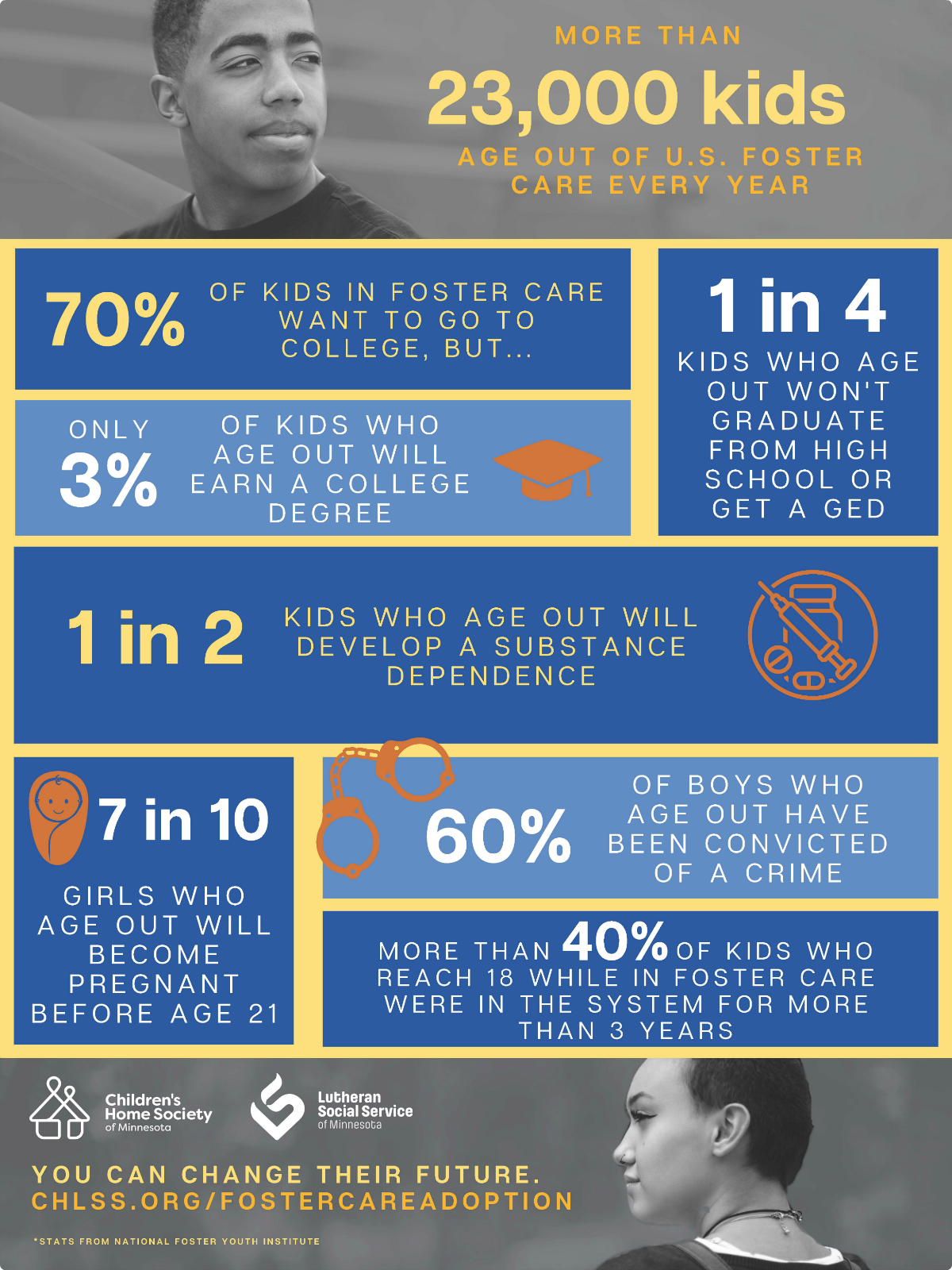Transitioning from childhood to young adulthood includes plenty of challenges, but for youth aging out of foster care, the challenges are even greater.
23,000 kids in the U.S. will age out of foster care this year. National studies have shown that within two to four years of leaving foster care at age 18:
- 25% won’t graduate from high school.
- 50% will develop a substance dependence.
- 70% of young women will become pregnant.
- 60% of young men will be convicted of a crime.

While these statistics are disheartening, there are things we can do as a society to help kids during this transition. In an article published on youthtoday.org, Jill Block, the New York director of the nonprofit iFoster says, “the solution is two-pronged to help our young people in foster care achieve self-sufficiency: 1) providing them with a runway, not a cliff, and 2) investing in ensuring they know how to fly when they are handed the controls on the day they age out. The government, funded by our tax dollars, is the legal guardian of each of these young people in foster care, and needs to do more. There are proven solutions in communities across the country that are managing to provide both the runways and flying lessons for foster youth, but the vast majority of youth aging out right now do not benefit from these solutions. Bottom line, we can do better—the solutions are out there.”
Here at CH/LSS we are continually advocating for youth aging out of foster care because we know what a tremendous impact adoption and family stability will have on their lives. Amy Fogel, a CH/LSS Social Worker Supervisor says, “What youth need most is support, support, support. Although young people who are turning 18 often feel they want to be independent and do things on their own, it’s critical that they have support from others. There will be times when they need help with something and it’s important that they have people that they can call.”
“Although young people who are turning 18 often feel they want to be indepenent and do things on their own, it’s critical that they have support from others.” – Amy Fogel, CH/LSS
One youth we work with who is aging out says, “I’m looking for my ‘warm spot,’ a home, and family where I am safe, valued, and loved.” The need for family is universal, and the impact of a safe, loving, and supportive family can be life-changing.
If you are interested in learning more about becoming a foster parent to an older child, please consider attending one of our free online information meetings, submitting an Application Part 1 to review your eligibility, or schedule a phone call (651-646-7771) to speak with our experienced and knowledgeable intake staff.


